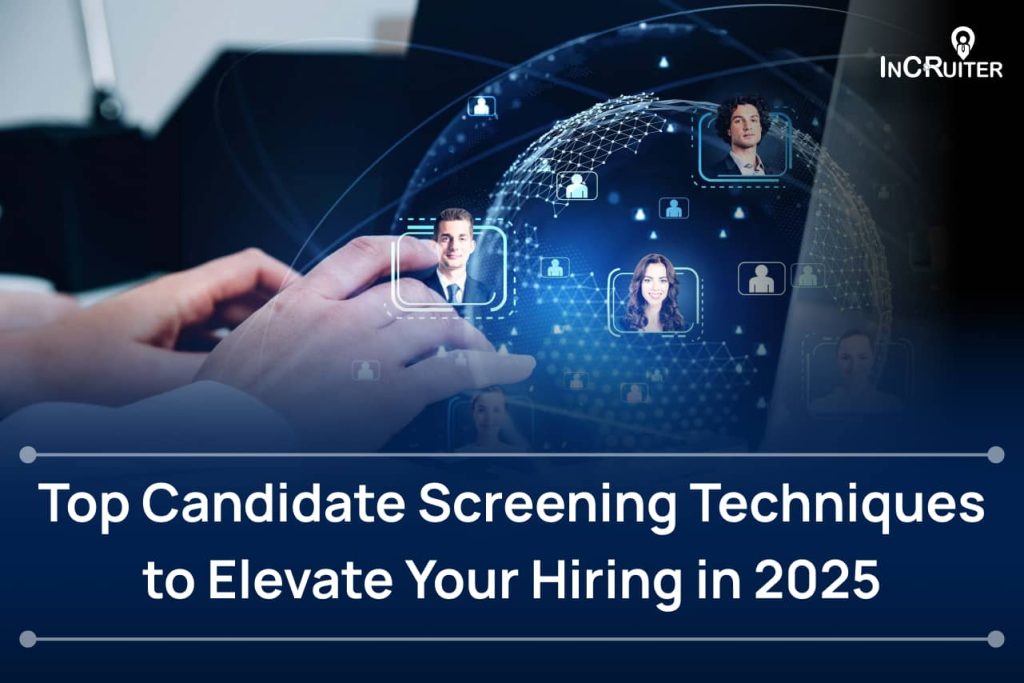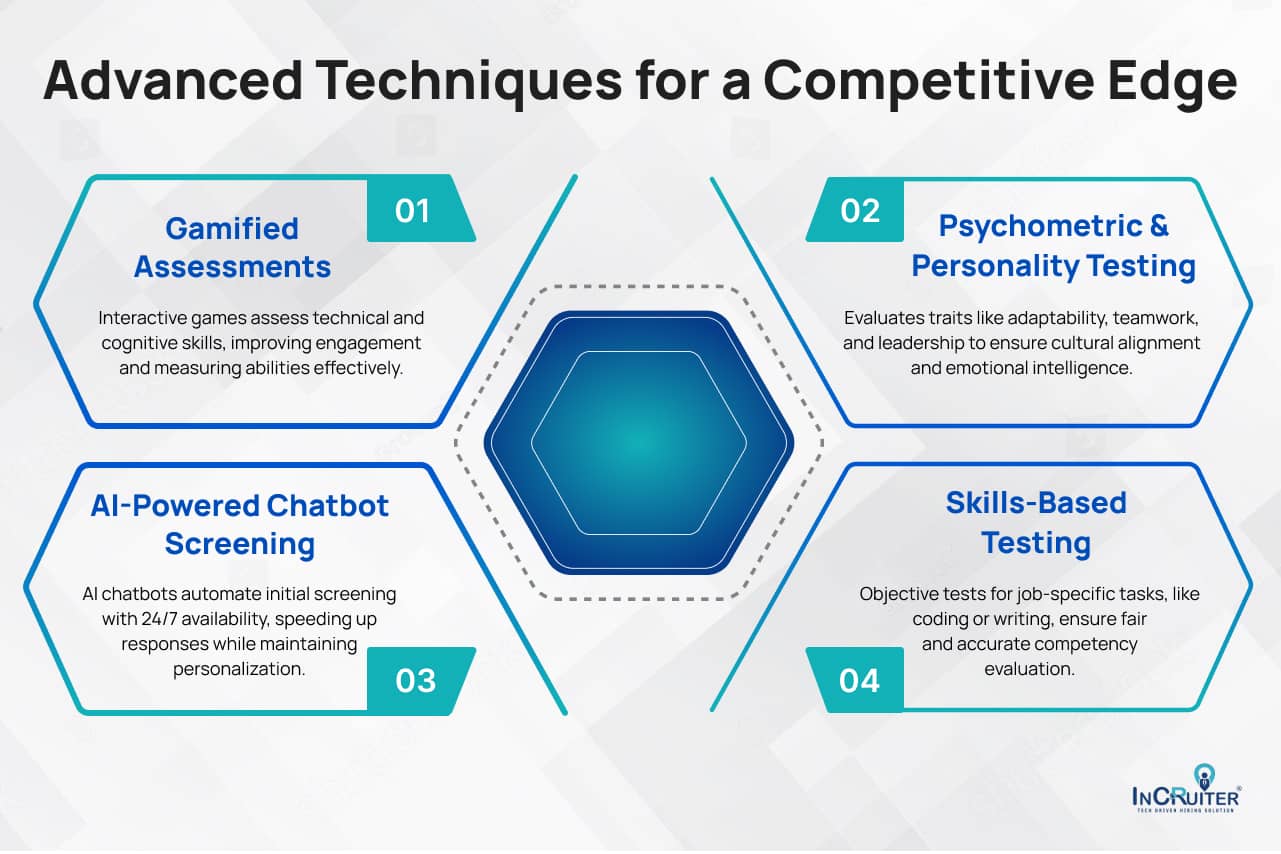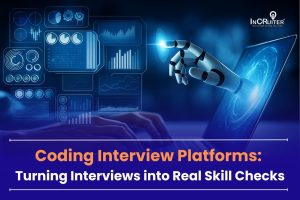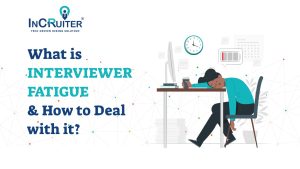
In 2025, many new opportunities and challenges have evolved in the hiring process for recruiters. Organizations are implementing more intelligent, quicker, and more effective screening methods to attract the best candidates for various positions. Advanced technological solutions like AI interview and significant data interventions bring candidate screening to the next level, making the process more accurate, objective, and fair.
But what about the technicalities of screening? Why is effective screening so critical? Which methods will be most helpful in creating a competitive hiring strategy? Let’s explore this in this blog.
The Importance of Effective Candidate Screening
Candidate screening is very important for the hiring organization when determining the right candidate for the job. SHRM released a report indicating that a bad hire’s average cost is over USD 240,000. But that is not the end of the problem; wrong hiring costs the organization decreased productivity, delayed work, deteriorated morale, and lost time and money.
Here are the benefits of investing in robust screening.
- Identify Top Performers: This helps reach the next stage with the best people to represent your company or organization.
- Save Time and Money: Automated programs avoid tedious, time-consuming actions as they support recruiters’ strategic employment approaches.
- Reduce Hiring Risks: Tichey and Second assessments reduce the likelihood of hiring incorrectly.
- Enhance Candidate Experience: A practical process means that candidates will feel positively inclined when working for your company.
Also, scoring speed, an accuracy level, and a candidate’s experience are some things to consider. When done correctly, it should and can take your hiring game to another level.
Also read: Time is money: AI interview tools save both
Key Applicant Screening Techniques for 2025

2025 has a diverse range of techniques for application screening. Some of the best are as follows:
1. Automated Resume Screening with ATS
Applicant Tracking Systems (ATS) has reformed the early stages of the hiring process. Indeed, through the algorithmized resume search, ATS can sort the candidates based on the keywords or their experience and qualifications within minutes.
Benefits
- It helps minimize the first stage of applicant screening so that recruiters can devote more time and energy to other tasks.
- Eliminates prejudices based on passion and prejudice since the candidates’ performance is compared based on specific qualifications and achievements.
- It helps to maintain a set of standard approaches for evaluating the applications.
Best Practices
- It is also critical to incorporate efficiency using relevant job description keywords here.
- Always check ATS settings to keep them tuned to the needs of a specific job.
- Never be consumed by systematic approaches that may complicate selecting the best talent through excessive elimination of potential talent from your organization.
2. Pre-Employment Assessments
Applicant testing regarding job-specific competencies offers insight into the job proficiency of a candidate.
Key Features
- Job-specific risk assessments are performed as per the employee’s requirements.
- A versatile kind of analytics that provides relevant data within which appropriate decisions can be made.
That is why incorporating these assessments at the beginning of the hiring process can effectively eliminate such candidates while finding top employees.
3. Virtual and Asynchronous Interviews
Asynchronous interviews in which participants answer pre-established questions are even more flexible. Talking about the benefits:
- No more hours slogging through piles of resumes when I could be doing other things – instead, batch reviews save time for the recruiters.
- Enables the candidates to continue the interviews at their convenience, thus enhancing convenience.
- Enables recruiting talented employees irrespective of time in different parts of the world.
Moreover, to make the process more friendly for the candidates, clearly state perfect instructions and what to expect in the following steps and time frames.
4. Knock-Out Questions in Applications
The use of knock-out questions in application forms means that candidates can be eliminated from the beginning of the process for meeting minimum criteria.
Knock-out questions exclude the unfit candidates from the pool, thus making the recruiter’s work easier.
Also read: How does interview outsourcing improve time-to-hire metrics?
Advanced Screening Techniques for a Competitive Edge

Gamified Assessments
App-based tests and gamified assessments offer a unique, engaging way to evaluate candidates’ technical and mental abilities. By incorporating fun, game-like elements, these tools help create a positive, stress-free environment for candidates. They allow recruiters to measure critical skills through real-life scenarios, while delivering objective, data-driven insights. The gamified approach not only keeps candidates engaged but also provides valuable information that can lead to more accurate, well-rounded hiring decisions.
Psychometric and Personality Testing
Psychometric tests are designed to measure a candidate’s logical intelligence and emotional traits, offering insight into their personality. These tests go beyond assessing technical skills, helping recruiters evaluate how well candidates fit within a team or company culture. Since teamwork, flexibility, and interpersonal skills are crucial for many roles, psychometric testing ensures the right cultural match. It provides a holistic view of a candidate’s potential, boosting long-term job satisfaction and reducing turnover.
AI-Powered Chatbot Screening
AI chatbots are transforming the recruitment process by providing automated, real-time screening for candidates. With the AI recruitment market projected to grow from USD 610.3 million in 2021 to USD 890.51 million by 2028, AI chatbots are becoming a vital tool in talent acquisition. These chatbots can handle screening questions, provide candidates with position details, and even schedule interviews, reducing the workload on HR teams. By offering round-the-clock interaction, they enhance candidate experience while streamlining the hiring process.
Skills-Based Testing
Skills-based testing ensures candidates can perform job-related tasks with precision. These tests are designed to evaluate practical abilities, such as coding challenges for software developers or content writing tests for marketing positions. By focusing on real-world tasks, these assessments help measure a candidate’s competency, reducing biases and promoting diversity. Skills-based tests provide an objective evaluation of a candidate’s abilities, ensuring they are well-prepared for the role, and align with the job requirements.
Also read: AI interview adoption in the recruitment processversity.
Steps to Implement Advanced Screening Techniques
- Audit Current Screening Processes: Determine candidates for change that would reduce inefficiencies.
- Adopt Modern Tools: A central theme focuses on investing in ATS, gamified assessment solutions, and implementing artificial intelligence-based solutions.
- Train Hiring Teams: Make sure that recruiters know current screening methods.
- Regularly Monitor Performance: It is essential to track the building blocks of the hiring process to determine the efficacy of your present strategy and where improvements can be made.
Also read: Technical screening tips.
Conclusion
Career screening is crucial to secure qualified employees for a company and, hence, remain relevant in the marketplace. Adopting innovative practices and using technology thus presents companies with a way to get better hires, minimize bias, and deliver quality candidate experience.
If you’re ready for a change, now is the time to approach recruitment differently. AI-driven platforms like InCruiter AI interview software are leading the way. Explore their tools today and transform your hiring process!
Ready to Transform Your Hiring Process?
Discover how our AI-powered interview platform can streamline your recruitment and find the best candidates faster.






